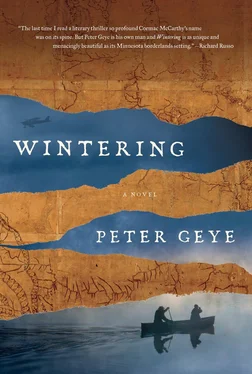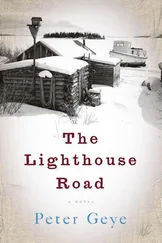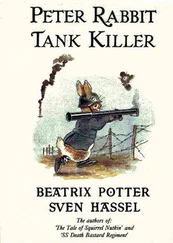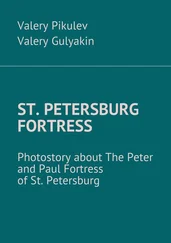“And you were that girl. You should’ve been happy. Anyone else on earth would’ve been.”
She lit a cigarette. “You’re simpler than I thought.”
“What about your children? Signe’s still so young.”
“That takes some nerve, mentioning my children.” An ugly, awful snarl crossed her face. “But I suppose you wouldn’t understand about that — barren as your life truly is.” She stepped closer to me. “But that brings us to why I’m here in the first place. You can have Harry. For God’s sake, please, take him. But leave my children out of your pathetic tryst.” She walked to the door. “They’re mine,” she turned to say before leaving, “not yours.”
—
I’ve thought of that day often, of the hatred in her voice, and the hurt. I’ve thought of it every time Gus and I have sat down to talk about what happened up on the borderlands. And each time it comes to mind, whenever I look at his sad eyes and listen to his sad voice, I’m sure that I never could’ve been a mother, much as I’ve begun to feel like I am to him.
And maybe I should have been. Maybe that’s how it was supposed to go. Maybe everyone involved would have been happier for it. The last time Gus and I talked, he spoke of her and said a few things that buoy this very notion. He’d just finished telling me about Harry throwing the book of maps into the lake. He paused then and stared into his hands for a moment before saying, as if we were having a different conversation altogether, “I never knew my mother very well. I was only seven or eight years old when she told me she’d never wanted to have children. She told me she wasn’t suited for it.” He looked up at me and smiled. “She wasn’t. But she tried. I’ll give her credit for that. She took us to the park and for walks up the river. She made us eat our vegetables and drink our milk and do our homework. She taught us to say ‘please’ and ‘thank you.’ She read to us at bedtime when we were tykes. But, my God, her unhappiness was overwhelming. Even before I knew what unhappiness was. Signe always chalked our mother’s moods up to the fact that she was not from here. That she felt imprisoned. Impoverished. She wasn’t from here, true. But she did come here of her own volition. Came running, in fact, to be with my dad. No one’s ever disputed that part of the story.”
I thought he might cry — his eyes were glossing up. “But I loved her. Very much. I loved her the way only a scorned child could. I still do.”
—
What’s uncanny is that Rebekah foretold all of this. It wasn’t her first act of clairvoyance, but it was her most chilling.
On the day Harry and Lisbet sneaked off to the fish house, I watched them go from the porch. Under the pretense of needing to shake out the rug, I stood in a haze of dust and counted their steps. When the air finally cleared, I turned to go back inside. There Rebekah stood, sharp and straight as a kitchen knife. As though she were privy to the thoughts in my head, she said, “You might take comfort in knowing that the Eide men have never chosen their women well.” She kept her eyes on the alleyway. “He’s a fool for falling for that one.” Now she edged her chin up and pointed it in their direction. “She’s a vixen and a vamp. I saw it the minute she stepped off that boat. She’ll never make a mother. You can see it in how she always expects to be looked at, how she carries that sketchbook around like she knows us better than we know ourselves.” She lowered her sharp chin. “All that girl really wants is a life she doesn’t have.”
“How do you know all that?”
“How could I not? I’ve spent most of my life being just like her.”
She went back into the apothecary and I followed with the rug. Inside, I laid it in front of the counter and went to my stool. Rebekah rearranged a couple of the hats on the display table in the middle of the floor, then stepped back, satisfied, and said, “It’s no coincidence she’s from Chicago. I was, too.”
“I didn’t know that.”
“Not born there, but I spent time in Chicago as a girl. I grew up in an orphanage in Wisconsin.”
“Oh?”
“I never knew my mother or father. For all I know they never were.”
“Never were what?”
She looked at me with her breathtaking condescension. “Never were anything. When I was twelve I stole some money and left the orphanage and went to Chicago. I worked in a brothel.”
“Dear Lord.”
“I wasn’t one of the girls. I took the coats. Lit cigarettes for the johns. I was all promise. All fantasy.”
“I thought Hosea was your father.”
“He took me in.” She looked hard across the room. “But he wasn’t my father. Any more than that girl will one day be a mother to Harry’s children.”
She started to go upstairs but stopped and stared at me again from across the room. “He might have come for you. I know that. And I’m sorry he hasn’t. It’s my fault he never did. He thinks you’re forbidden. Because of me. Because you work here. He can’t abide me.”
I said nothing. I couldn’t. It was the only time she ever brought him up in conversation, and I was frankly struck mute.
She took the first step and then turned with her final thought on the matter. “But someday he’ll realize that you have nothing to do with me. Someday he’ll realize that he’s made a terrible mistake, taking the walk he did just now. Someday, his children will need the likes of you. No one should go through life without a mother.” She took another step. “Or, anyway, without someone to mother them.”
“LIKELY we’ll freeze to death before we starve.” This was Harry speaking, later that first morning at what by now they were calling “the trapper’s shack.” “We ought to start with four cords of firewood. Four cords and a good idea where to find more.”
Four cords without a chain saw? Gus could hardly imagine the labor.
“You start with the gathering, eh?” Harry said. “I’ll get to work around here.”
“Sure,” Gus said.
“Start with that birch.” Harry pointed across the bay. “Pull out as much deadfall as you can. Paddle it back. Birch’ll burn cleaner than these others.” He waved his hands to suggest the cedar and pine and maple.
So Gus grabbed a saw and hatchet and paddled across the bay. The sun rose behind the trees, and the whiteness of their bark and the frost still heavy on the ground magnified the glare tenfold. He put ashore and started into the woods. For every tree that stood another had fallen, and he pulled a few logs from the ferns. They were pulpy and moss-covered, and where there was no moss their bark had been weathered black. He walked farther into the trees, and the ground began to rise as if with the sun.
At the top was a knoll of smooth granite, the downside of which opened into a stand of bur oaks. Two dozen of them, the ground beneath covered with fallen leaves and acorns. Beyond the oaks, the forest deepened again. Gus wandered around under the shelter of those alien oaks. Woolgathering, his father would have called it, though he himself considered it simply taking stock of their situation, which was more confounding now than it had ever been.
He walked to the far side of the oaks, acorns cracking beneath the vulcanized rubber of his boot soles. Stubborn leaves still hung in clumps in the branches above. The oaks were always the last to give up. But bur oaks this far north? He thought about that.
And he wondered, Why had his father thrown the maps in the water? Why had he made them in the first place? Most pressingly, why had he relied on them while knowing full well their fallibility? Gus looked up again at the bur oaks. There would be days ahead when the sun would barely stretch above their stately limbs, days when the temperature at noon would be forty degrees below zero. Who in their right mind would venture toward days like that? With only those maps now on the bottom of the lake? In answer to his questions, he sat down against one of the oaks and fought some strange and sad happiness running roughshod through his thoughts.
Читать дальше












